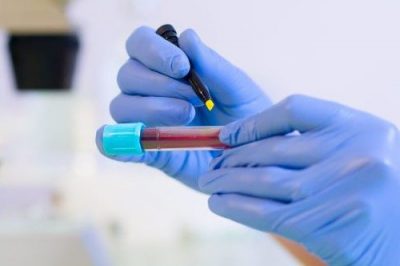
Six North Carolina community and environmental justice groups say they were angered by the Environmental Protection Agency’s “inadequate” response last week to their petition asking the EPA to require Chemours to pay for research into the health effects from exposure from PFAS pollution from the Chemours facility in Fayetteville.
The groups, the Center for Environmental Health, Cape Fear River Watch, Clean Cape Fear, Democracy Green, the NC Black Alliance and Toxic Free NC, had in October 2020 filed the petition under the Toxic Substances Control Act asking the EPA to require health and environmental impact testing on 54 chemical substances identified as PFAS manufactured by Chemours.
Supporter Spotlight
The Trump administration denied the petition in January 2021. In light of the change in administrations and in policy priorities concerning PFAS, the groups in March 2021 requested that the agency reconsider its denial, which EPA agreed to do in September.
The EPA announced Dec. 28 that it had granted the petition, but the groups say the action effectively amounts to no change.
“The EPA is claiming that they’ve granted this petition when, in effect, this is a full denial of the petition, a denial of an opportunity for this community and the entire country and the world to gain much-needed information about the health effects of PFAS,” Cape Fear Riverwatch Executive Director Dana Sargent told Coastal Review.
Sargent said the EPA put out a “false narrative,” denying the requested testing requirements and announcing steps the agency had already said it planned to take.
“It was denial wrapped in flowers and smoke and mirrors,” she said.
Supporter Spotlight
The EPA in October 2021 announced a National PFAS Testing Strategy, as part of the agency’s PFAS Strategic Roadmap, that identifies priority substances for the first of several described phases of testing. The approach was based on grouping chemicals by their chemical features and available toxicity data.
Related: EPA to list PFAS as hazardous as part of new approach
These substances include some of the chemicals identified in the groups’ petition, but also additional substances where key data is lacking.
The EPA said that under its testing strategy, the first test orders will be for 24 categories of PFAS about which the least is known to provide human health hazard data that cover 30 of the 54 petition chemicals.
The first phase of testing on 24 PFAS was expected to provide data that can be extrapolated to 2,950 PFAS that belong to the same categories as the 24 individual substances.
The groups said the response includes no requirement for epidemiological health studies and no testing orders on 47 of the 54 PFAS they had requested to be studied.
An additional nine PFAS identified in the petition belong to one other category included in the strategy. Fifteen chemicals identified in the petition do not fit the definition of PFAS used in developing the strategy, the EPA said, adding that the agency has determined that “robust” data on some of them is available. The EPA said it is conducting more in-depth analyses of the existing data that will inform later phases of testing.
The EPA said it is contributing to and reviewing numerous existing ongoing human studies, including studies on potentially exposed workers and communities in North Carolina. Efforts include studies of health outcomes for people in communities impacted by industrial PFAS releases, as well studies that explore the connection between chronic health outcomes and PFAS exposures in North Carolina.
The agency said it was not appropriate to require the development or submission of analytical standards with the initial test orders that will be issued under the testing strategy and that it lacks the ability to order the submission of all analytical standards in the manner requested. Nonetheless, the EPA has requested comment on whether to require the submission of existing analytical methods for PFAS under a separate rulemaking that the agency expects to finalize in 2022.
Sargent rejected the EPA’s rationale.
“We did so much of this work for them, so the idea that they just didn’t have the capacity is ridiculous,” she said.
She said the petitioners were considering options including continuing their legal challenge that had begun under the Trump administration.
“I can say that we’re not done. This isn’t over,” Sargent said.







